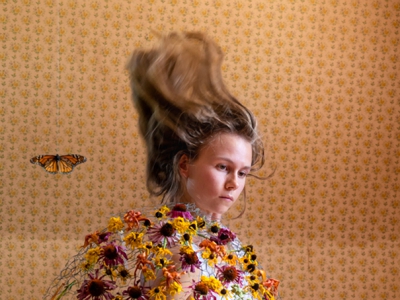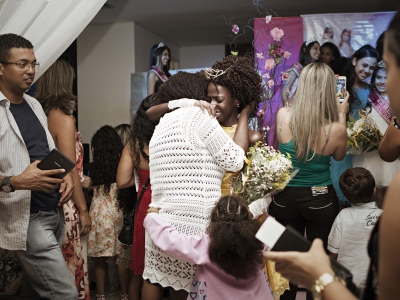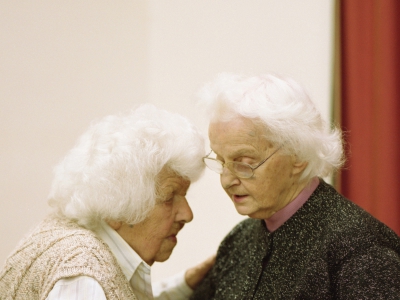Section / Faces
Showing the Impacts of Institutionalisation
Published June 21, 2018
Words by
Chloe Coleman, Flash Forward 2018 Juror
Photos by Elena Anosova, Flash Forward 2018 Winner
The work entered in Flash Forward this year spanned genres beyond the traditional reportage and fine art. Some of the projects existed in the space between the two. Having grown up in a house of artists and starting my secondary education in fine art but finishing in photojournalism, I find this space particularly interesting.
The marrying of the factual and conceptual is not always a success. Some voices in either industry may go as far as to argue that the union is even inappropriate. But when artistic concepts or aesthetics are applied, and journalistic ethics are preserved, the outcome can be impactful.
Elena Anosova’s work, ‘Faces’ from her wider project ‘Section’, is such an example of such impact. She describes her work as being “centered around lives of women in closed institutions, isolation, social stigmatization” specifically in her native Russia.
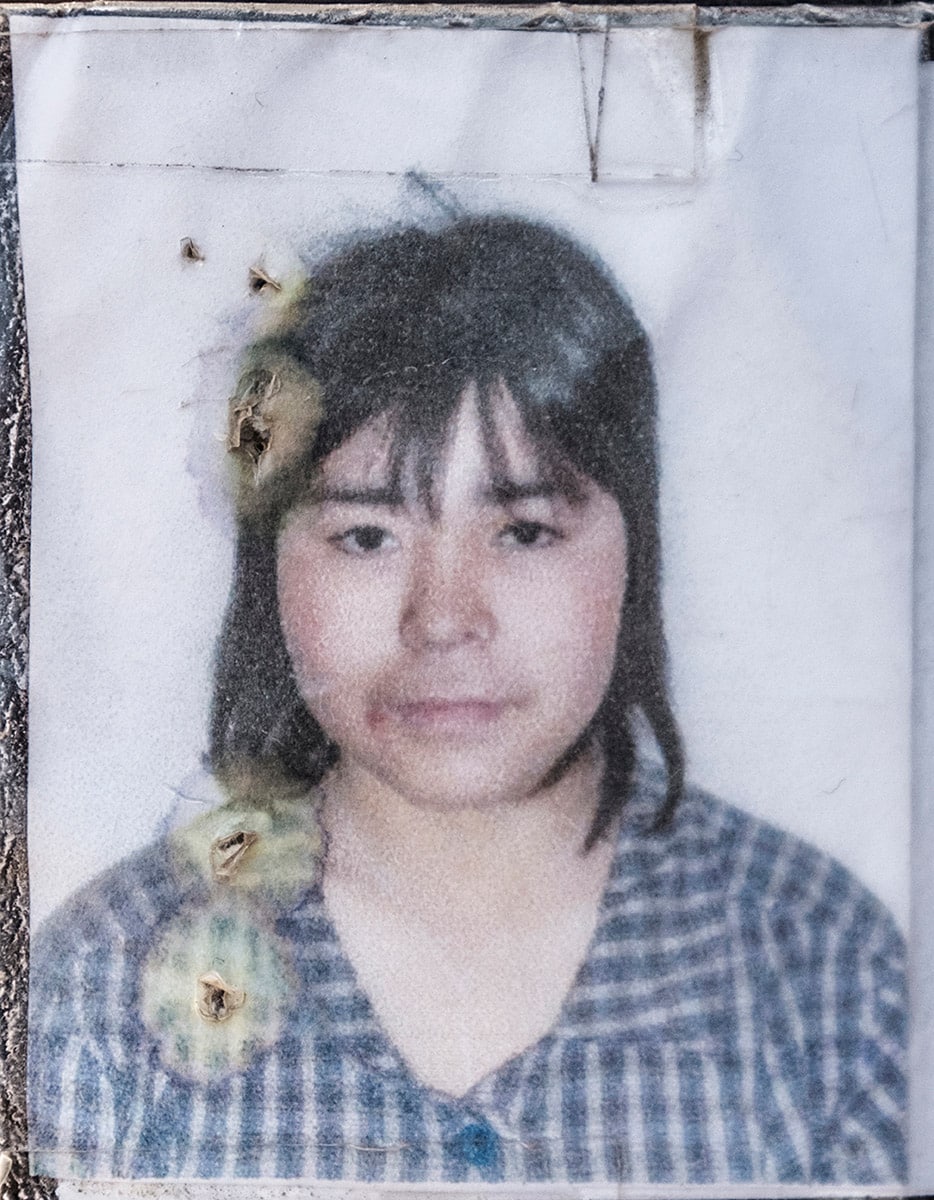
Irina, 23 years old. First-time offender, sentenced to 6,6 years.
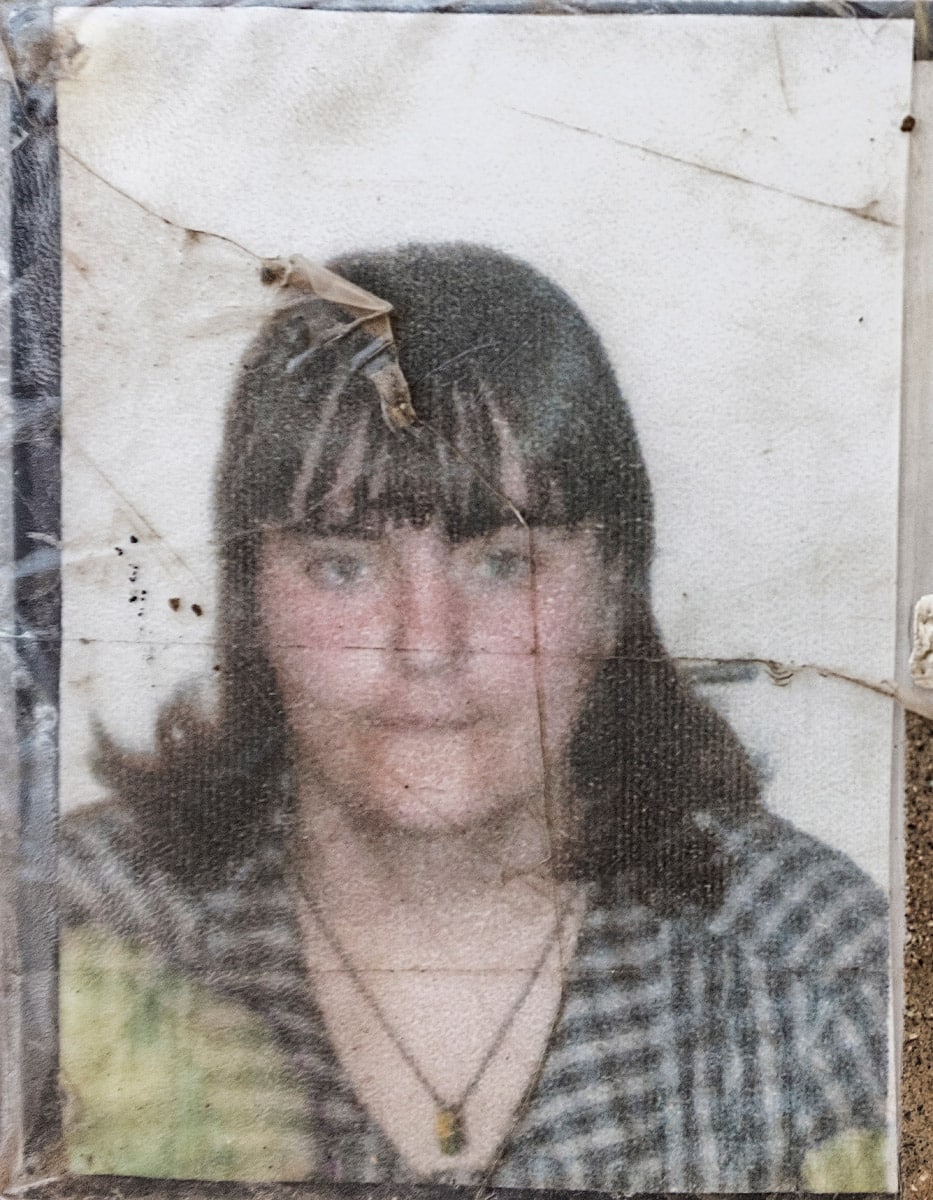
Maria, 29 years old. First-time offender, sentenced to 2,2 years.
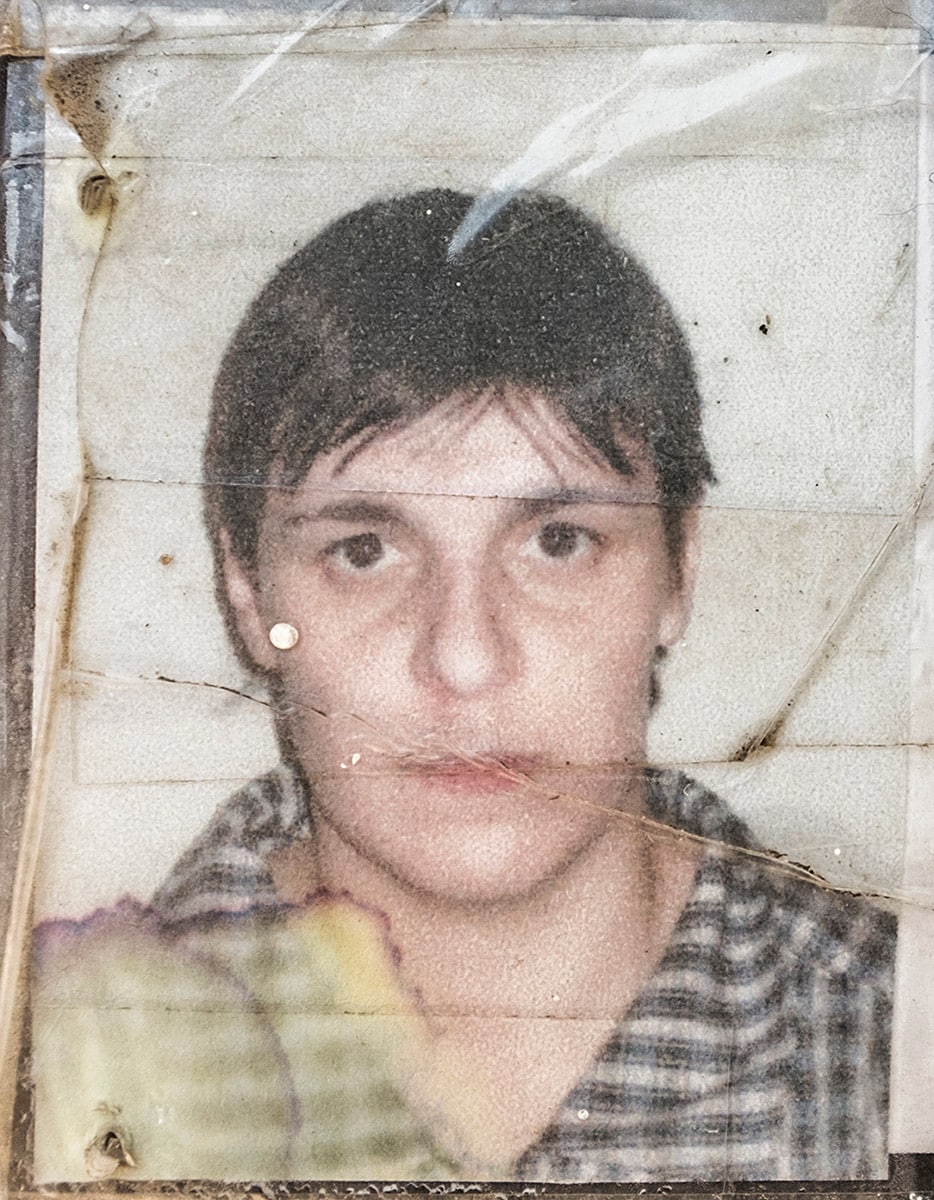
Svetlana, 28 years old. First-time offender, sentenced to 12 years.
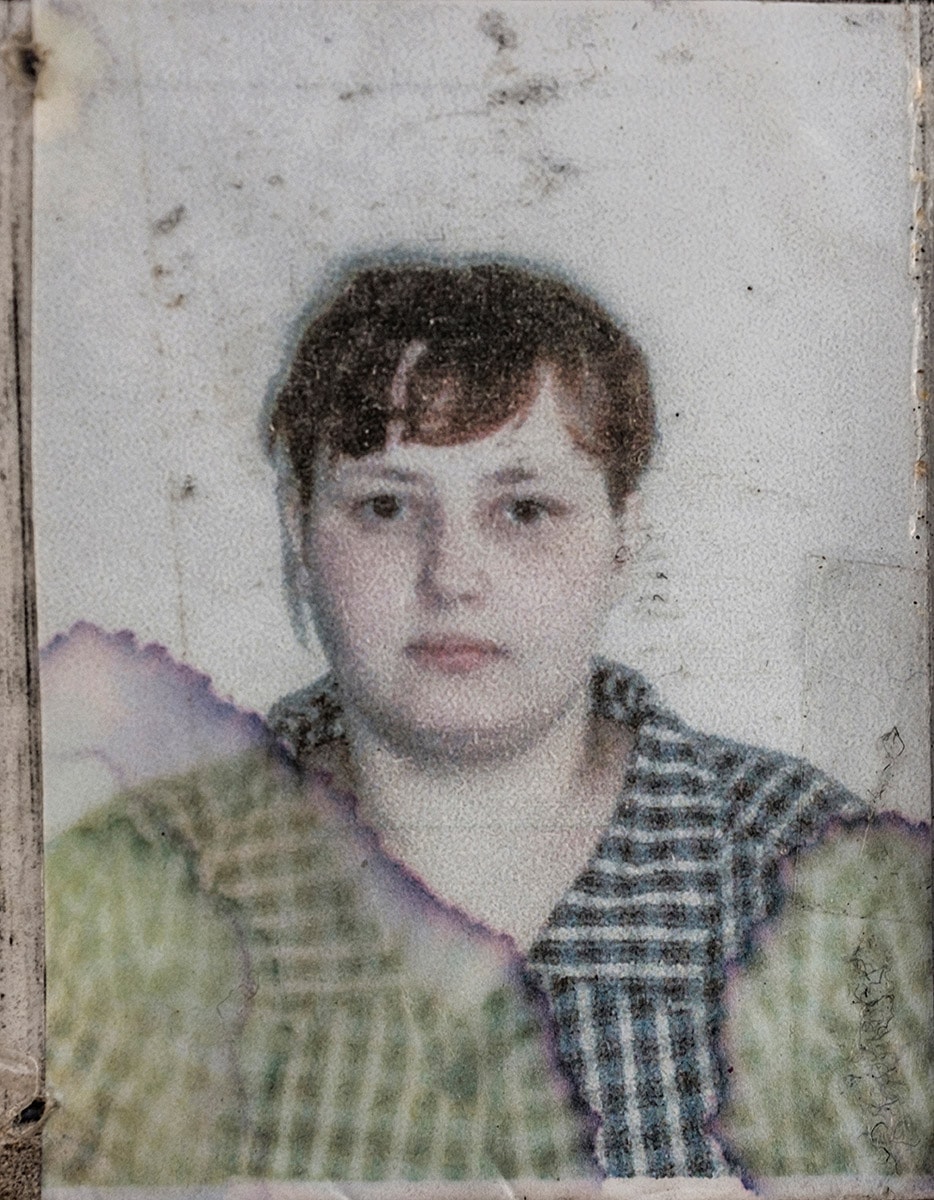
Tatiana, 27 years old. First-time offender, sentenced to 9,6 years.
The photographs submitted to Flash Forward are from the several months Anosova spent documenting women’s prisons in Siberia. Amongst other things, she photographed the institutional portraits that were taken and printed by the prison administration and sewn onto the inmates’ clothes to serve as identity cards.
Though the project is documenting found images, the cards look like works of art. Over time, the cards faded, became damaged and distorted. Watermarks, creases, and even holes give the impression that these images have been made using an alternative printmaking process.
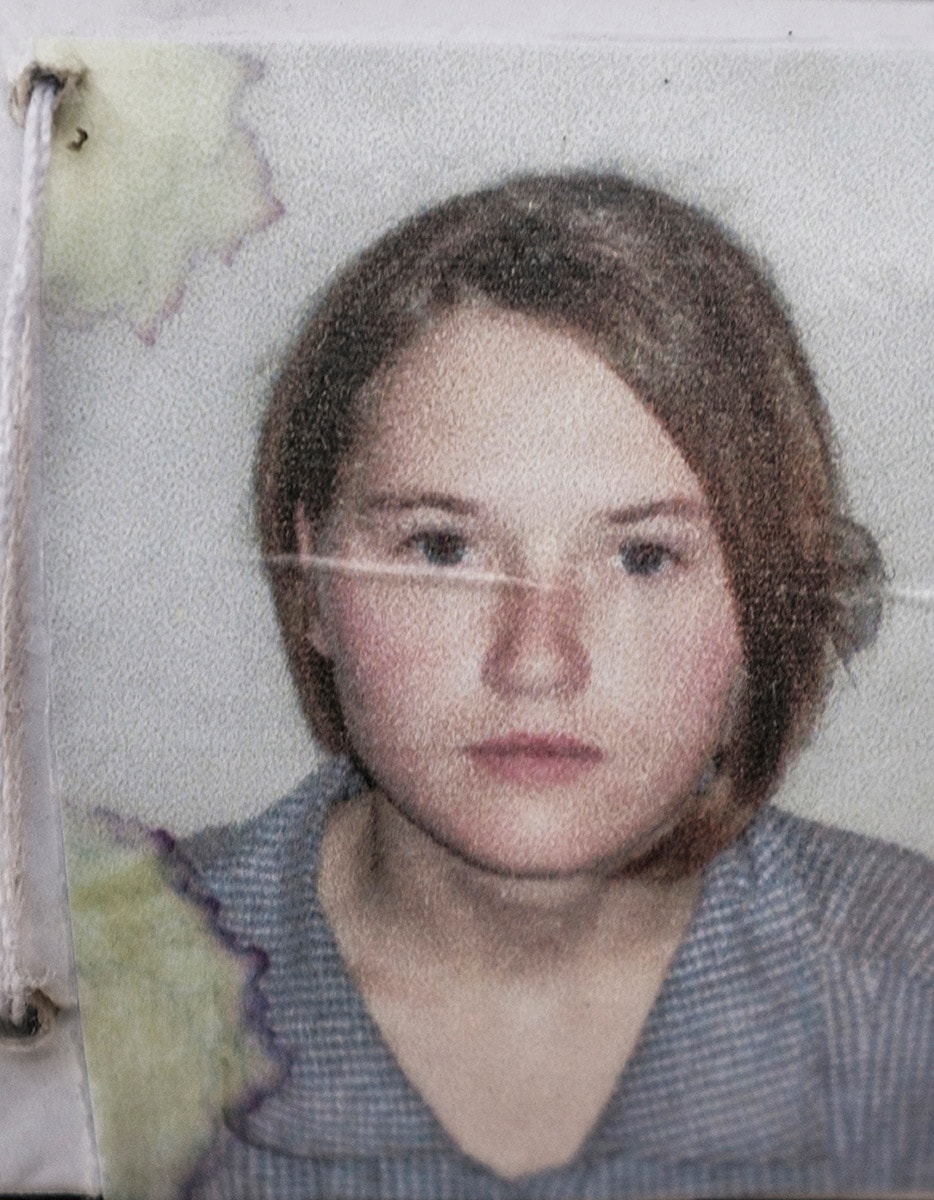
Masha, 20 years old. First-time offender, sentenced to 6 years.
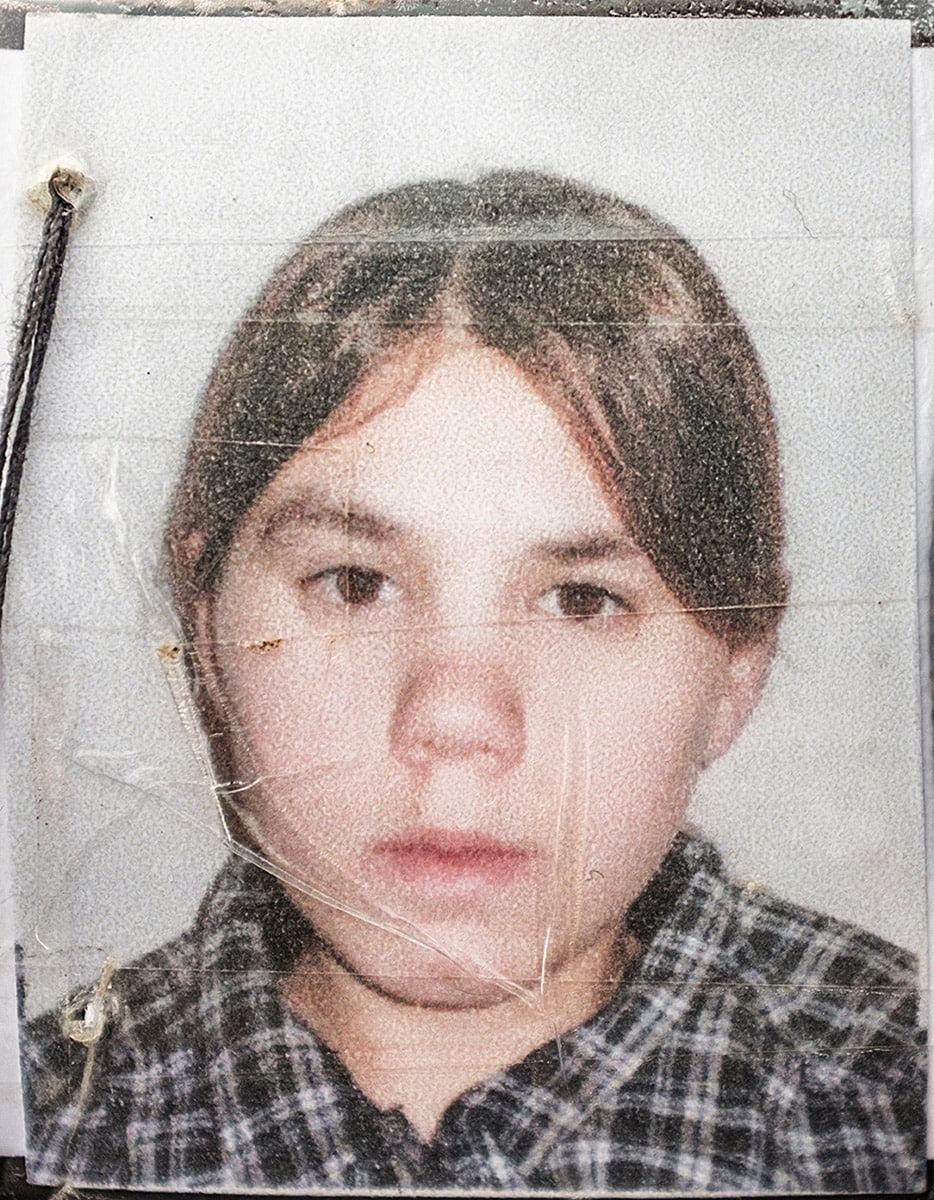
Ylia, 22 years old. First-time offender, sentenced to 7 years.
But, more than their aesthetics, its their meaning that affects us most. Through Anosova’s documentation these distortions, which happened naturally as the prisoners served their sentence, become a metaphor for the impact that institutionalised life has on the women. The amount of damage gives a sense of the amount of time the individual has already spent in prison.
Anosova says that the images distort much in the same way a person does when being “without security and any possibility of being alone.” In this way, a simple series of photographs conveys an intricate social construct. They could be published with a news outlet or hang on a gallery wall, either way they will stay in your mind.
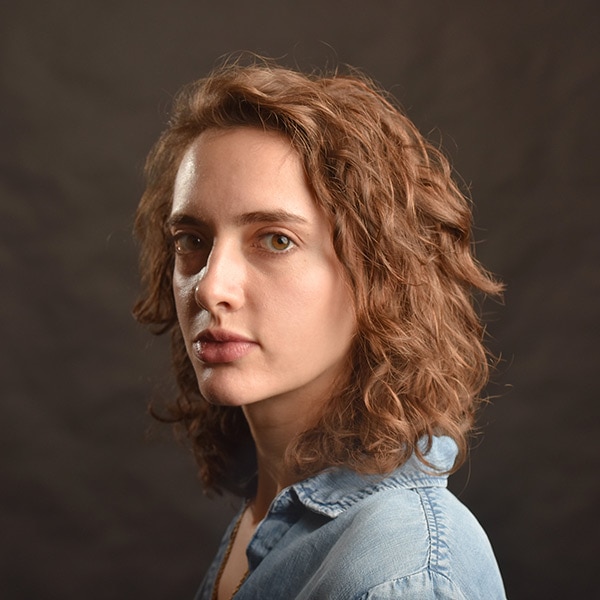
Chloe Coleman is an award winning photo editor at The Washington Post, covering international news and Outlook. She is a contributing writer and editor on the Washington Post’s In Sight photo blog where she has written about and featured contemporary photography, photo books and exhibitions. Her career in photo editing began as an intern at NPR, followed by her first staff position as a digital photo editor at The Denver Post. She attended the Columbus College of Art and Design and is a graduate of the photojournalism program at the Rochester Institute of Technology. Chloe also serves as a faculty member at The Kalish Visual Editing Workshop and was a juror for the Magenta Foundation’s Flash Forward 2018.


